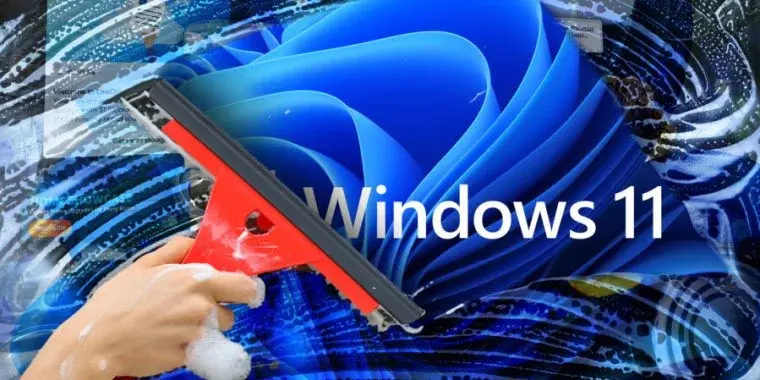
It’s bad when an operating system keeps giving you a screen full of options and the best answer for every single one is No.

if I need to go in to a command line and make a custom boot of the OS. I might as well be using a Linux distribution and not have the system reset my work every time it updates.

I did this about a year ago and haven’t looked back. The only thing that’s sometimes a problem is if a game has anti cheat stuff that’s super Windows specific, but I wouldn’t want to run those things anyway.

10 years strong on Linux and still the only windows laptop I have at home is the one my work gave me to use.

If your OS is nuisance, maybe get a different OS.

Every OS is a nuisance, it’s about how each affect the user and the users preferences on those interactions.

I disagree
Even windows used to not be a nuisance, but dark patterns are pretty prevalent these days

100%. Most nuisances on Linux are considered issues to be fixed or improved, in windows are by design.

If you are learning all that might as well just switch to Linux and stop relying on Microsoft’s enshittified products in the first place.

I’m on your side, but comments like these are nonsense and help nobody.

how so?
learning all that stuff to clean windows is like replacing reddit with another privately-owned publicly-traded alternative instead of lemmy.
the same problems will keep returning over and over. in this case until next update. i’m old enough to remember these issues going back to the Vista days and its only gotten worse.

(Not the person you replied to)
Windows has issues, but so does Linux. My personal experience with Fedora (Silverblue) has been fairly good with minimal hassle (Gnome Software breaks sometimes with auto updates, but is leaps and bounds ahead of the Synaptic days). However, someone using other hardware, another distro, or using other software might have a lot more problems to contend with.
There’s a lot of case-by-case nuance that in my opinion makes broad switch from A to B recommendations less meaningful than discussing the pros and cons and letting people decide on their own whether Linux could be useful for them.

yes, it does have a different set of advantages/disadvantages. i’m talking specifically about bloatware and privacy problems. looking for competition and alternatives is a good thing.
hardware support isn’t perfect on windows either and can always be worked on (and it is!) when the entity behind it doesn’t have financial incentive to enshittify their software.
the important part is that we don’t have ONE financially motivated entity with all the control.
dismissing it as ‘a broad switch’ ignores the fact moat people use windows just because its whats there despite its shortcomings. we should be pushing for it.

When going from Windows to Linux, all of the tradeoffs are involved. For me what I don’t like about Windows outweighs the pain points of my choice of Linux distro, but for some they’d weigh the sides and Windows still comes out on top.
Anyway my take is that Linux is better ideologically, but for the average consumer who justs want to use their favorite apps, Windows works fine and they’re not really going to care until Windows piles on enough garbage to make switching worthwhile.

I was under the impression we were talking about power users though. isnt this thread about how to debloat Windows? I’m talking about specifically people taking their time to learn and debloat Windows. Thats a huge difference.
Average consumers put up with an OS riddled with ads because they don’t know any better, not because Facebook and Zoom wouldn’t work.
Even then if you swap it out for Linux, most average people will adapt to the UI and then not see much difference. Average people use apps that are all on Linux one way or the other.

I guess it kind of depends. Not really sure what most people actually use, but for those who use MS’s services, Office web isn’t great, and Skype for Linux is rather temperamental. A lot of games work under Proton, but not all.
My perception of “average user” is probably skewed towards being not technical enough to troubleshoot on their own, but skilled enough to run through a tutorial of what keys to press. For someone used to Windows, patching things up is simpler than learning all the ins and outs of a new OS.
I don’t disagree that most people would be fine using Linux, but there needs to be a compelling reason why Linux would be significantly better, or else the switching cost makes it not worthwhile.

I have switched from Fedora to Ubuntu to Gentoo, and I had almost no issues on any of them.
If you have issues with Windows you need to solve using CLI, might as well just learn to use Linux. It’s nowhere near as bad as people remember.

Ok folks telling me to just get a Linux Distro.
PC Gaming - Enshrouded, Valheim, BG3, Dragon Age: Origins, and No Man’s Sky, generally Steam platform. Classics like Caesar III, TIE Fighter.
Work - Data Analysis, Lots of word documents, spreadsheets
Internet - Light browsing, podcast listening, music streaming
What distro and why?

I use Linux currently and have for many years. It is a wonderful operating system. However, if you wish to switch to Linux, it is in your best interest to understand that enthusiasts will oversell whatever they love, and they will do so without even noticing it.
Gaming on Linux is impressive and it’s getting better every day, but it is still not the same as Windows.
Depending on the games you wish to play, you may feel frustrated at times. Also, barely any peripherals have official Linux support on a software level. I’m talking about fancy keyboards, mice, gamepads, cameras, microphones, headphones, and all kinds of RGB contraptions.
If something doesn’t work, the next recommended steps can range from installing a complicated third-party interface to essentially programming your own. If I read the word “kernel” as part of a solution, chances are that I’m just buying something else instead.
People also forget that even supported games sometimes malfunction, and all tips and fixes will assume you’re running Windows. Besides, not every game is on Steam, and even when they are, some may require the use of external software to install and manage mods. So using Linux for games is awesome, but significantly less so if you are not an advanced user and want more than the defaults for your games.
When it comes to work, you might find yourself restricted to LibreOffice or Microsoft Office Online. It is possible to run Office via Wine, but I’m not sure if that’s a good idea (more on that here). A bit off-topic, but I’ve been trying to purchase a legit license for local Microsoft Office and I don’t think they even sell it anymore. They’re completely focused on the cloud version.

If you like the older windows ui, Linux mint. You don’t need to look any further than that. If you want something fresh and cool, use regular fedora with gnome, if you want a more mac like or windows 11 experience use fedora kde. That’s all you need to know.

https://distrochooser.de --> find a distro that fits your criteria
https://alternativeto.net --> find alternatives to your windows products
https://protondb.com --> check if your games run on linux

to be fair distrochooser is focused more on power users and spit out pretty generic recommendations.

EndeavourOS
Check your games on ProtonDB. But I stopped letting developers dictate which OS I used 10 years ago. If it doesn’t work on Linux, I don’t buy it.

You just described letting developers dictate which OS you use…

No, I’ve chosen Linux.
I’m letting developers choose whether they want a chance at earning my money or not.

Buy a second drive and boot into it for Windows gaming. Do everything else on Linux. Personally I have found this to be the least frustrating, best performing solution with the added benefit of segregating gaming from work/study and vice versa.

Pop! OS if you’ve got an NVidia card!

I use Linux mint on my old Thinkpad and for the most part it works great. I use Kubuntu on my desktop. Asides from from weird hardware issues I had when initially setting it up, works great as well (Wayland too).
I agree with others: Linux mint, fedora, Ubuntu. Honestly, whatever gives you the least number of issues

Linux mint, easy AF and has a good app store
Get steam as a flatpak from apo store. Try a dual boot.
For internet Firefox is good, try it with unlock
For work use libreoffice or just get ms office
Mint is very easy and user friendly, use cinnamon edition. It looks very similar. I can explain more if needed

When I tried setting up a new computer I initially started with Windows. Going through that new setup process was such a pain in the ass with how Microsoft tries to connect you to their services. I just want to use the damn computer without any of these ‘extra’ services. Like, is it so difficult to have an OS that you can just simply install and use without any BS? Its what finally pushed me to move to Linux. Haven’t looked back since.

Windows 11 was the straw that broke the camel’s back for me as an MS specialist with 20+ years of experience.
Under Windows 10, making a golden image was all you needed to make sure that malware (yes some MS services share the same traits as malware!), bloatware and telemetry were not active, even on major updates (a couple of exceptions but overall that was the case)
Windows 11 no matter what you do, on a major update it will reset to Microsoft’s “recommend” settings even wiping out task scheduler scripts and reg entries. That is malware behaviour and should be treated as such.
Honestly, I know I will sound like a broken record but if you have any value on your privacy, get on Linux. There are distros out there that are very friendly but remember with anything new, there is a learning curve and the steepness is based on how willing you are to learn, don’t be afraid.

Mountain Dew Verification Can when?

If the rumored transition to a subscription model with Win12 comes to pass, you can bet there will be shit like that.

I’ve got a whole powershell script I run these days on a new Windows install to remove eveything I don’t need and set things how I like them

Used to do that but inevitably what happens is:
-
An update comes along and reinstalls it.
-
Something else is broken by it’s removal because it’s a dependency of the OS.
Eventually I got tired of subjecting myself to the abuse.
When MS makes a spam-free, ad-free, telemtry-free, account-free, lightweight version of Windows, I’ll be first in line to buy a license.

The closest thing is LTSC, it still has some telemetry but less than the main version. They haven’t released LTSC for Windows 11 yet though.

they will probably call it LTSD

I wish I could move but mac OS multi-monitor support is terrible and Linux desktop gives me endless problems

I hear ya. Personally I’d rather deal with the endless Linux problems than Windows’ constant force-feeding bullshit.

LTSC, but they don’t sell that to end customers.
-

So when you clean windows, how long does it actually stay clean? I uninstalled a bunch of stuff when I was using windows 10 and they kept reappearing.

A bunch of crybabies.

Set language to german during setup, back after.

Can you elaborate? Is it because Germany has regulations against all the bloatware?

GDPR
🤖 I’m a bot that provides automatic summaries for articles:
Click here to see the summary
I’ve written before about my nostalgia for the Windows XP- or Windows 7-era “clean install,” when you could substantially improve any given pre-made PC merely by taking an official direct-from-Microsoft Windows install disk and blowing away the factory install, ridding yourself of 60-day antivirus trials, WildTangent games, outdated drivers, and whatever other software your PC maker threw on it to help subsidize its cost.
I frequently write about Windows, Edge, and other Microsoft-adjacent technologies as part of my day job, and I sign into my daily-use PCs with a Microsoft account, so my usage patterns may be atypical for many Ars Technica readers.
There are plenty of experimental hacks dedicated to that sort of thing—NTDev’s Tiny11 project is one—but removing built-in Windows components can cause unexpected compatibility and security problems, and Tiny11 has historically had issues with basic table-stakes stuff like “installing security updates.”
Regardless of your reasoning, if you don’t want to bother with sign-in at setup, you have two options (three for Windows 11 Pro users):
During Windows 11 Setup, after selecting a language and keyboard layout but before connecting to a network, hit Shift+F10 to open the command prompt.
Proceed through the Windows 11 setup as you normally would, including connecting to a network and allowing the system to check for updates.
Saved 70% of original text.


